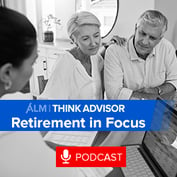The comment period on the Labor Department’s fiduciary rule to align with the Securities and Exchange Commission’s Regulation Best Interest ended on Aug. 8. A good smattering of the comments called for Labor to amend the rule. That’s unlikely.
Just days before the comment period expired, Labor denied a request by lawmakers to hold a hearing or extend the comment period on its new fiduciary prohibited transaction exemption aligning with Reg BI.
But then in a reversal, Labor said on Aug. 21 that it would hold hearings on its fiduciary rule on Sept. 3 and, if necessary, Sept. 4.
In a July letter, Sen. Patty Murray, D-Wash., ranking member on the Health, Education, Labor and Pensions Committee, asked Jeanne Klinefelter Wilson, acting head of Labor’s Employee Benefits Security Administration, to hold public hearings as Labor did in 2015 when it was seeking feedback on the previous fiduciary rule vacated by the U.S. Court of Appeals for the 5th Circuit.
In response, Joe Wheeler, deputy assistant secretary for Labor, told Murray in early August that Labor “believes that a public hearing is unnecessary” for the proposed class exemption, as it’s “much narrower in scope” than the vacated fiduciary rule.
“I’m incredibly frustrated that the Trump administration is charging ahead so recklessly with a proposal that could lead to retirement savers losing billions of dollars a year due to conflicted advice,” Murray said in an email statement.
The proposed prohibited transaction exemption had a 30-day comment period, which lawmakers and industry groups argued was far too short considering the rule’s complexity.
Final Rule on ‘Five-Part Test’
Labor’s package also included a final rule reinstating the 1975 fiduciary five-part test under the Employee Retirement Income Security Act. Unlike with the proposed fiduciary transaction exemption, or PTE, there was “no opportunity for comment” on the final rule, Barbara Roper, director of investor protection for the Consumer Federation of America, told me in early August.
There was “no consideration of whether it should be amended. The preamble [to the rule] includes a discussion of how it [the final rule] will be interpreted by the Department, but the rule is final,” she explained.
Roper and Micah Hauptman, financial services counsel at the consumer group, maintained in their comment letter to Labor that “we know from past experience that the 1975 regulatory definition of fiduciary investment advice, with its five-part test, is easily gamed by financial firms that like to market themselves as trusted advisers while avoiding any fiduciary obligations to their clients.”
By reinstating “that deeply flawed definition, the Department is ensuring that these firms, as well as their employees and agents, will only be investment advice fiduciaries when they choose to be,” they explained.
“Many if not most rollover recommendations, and virtually all of those involving rollovers into non-securities, will get a regulatory free pass as a result of the Department’s decision to reinstate this outdated, loophole-filled definition,” Roper and Hauptman said.
Labor should withdraw its fiduciary rule package as it allows for conflicted investment advice and gives most rollover recommendations a “regulatory free pass,” Roper said in the comment letter.
The Public Investors Advocate Bar Association, a group of lawyers who represent investors in disputes with the securities industry, urged Labor in a comment letter “to adopt a new regulation, which would eliminate the need to satisfy a five-part test before someone providing investment advice would be deemed a fiduciary.”
Said PIABA: “There should be no need to establish that investment advice has been given on a regular basis, or pursuant to a mutual agreement that the advice will serve as the primary basis for the investment decision. Any individual providing investment advice to a retirement investor for a fee should be deemed an Investment Advice Fiduciary and held to the highest fiduciary standards.”
Democratic Lawmakers Weigh In
Murray and Rep. Bobby Scott, D-Va., chairman of the House Education and Labor Committee, along with House Financial Services Chairwoman Maxine Waters, D-Calif., and Sen. Kamala Harris, D-Calif., Democratic presidential candidate Joe Biden’s VP pick, agreed in a comment letter to Labor that reinstating the 1975 five-part test under the Employee Retirement Income Security Act will allow “unscrupulous” advisors to provide conflicted advice.









 August 26, 2020 at 10:17 PM
August 26, 2020 at 10:17 PM








